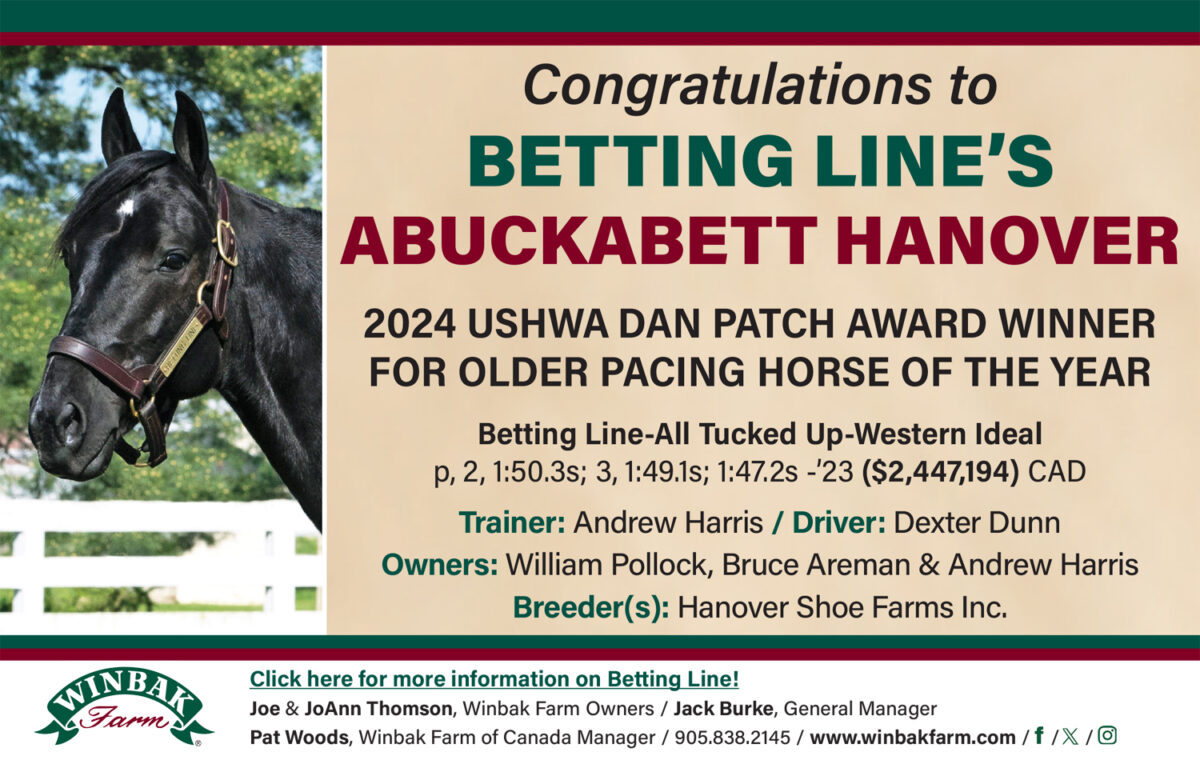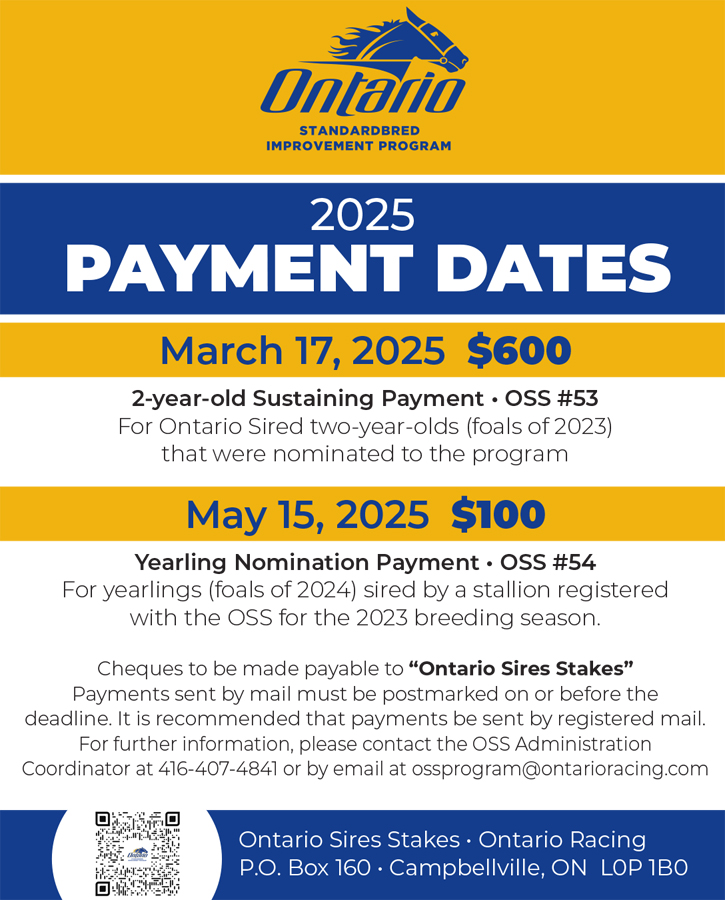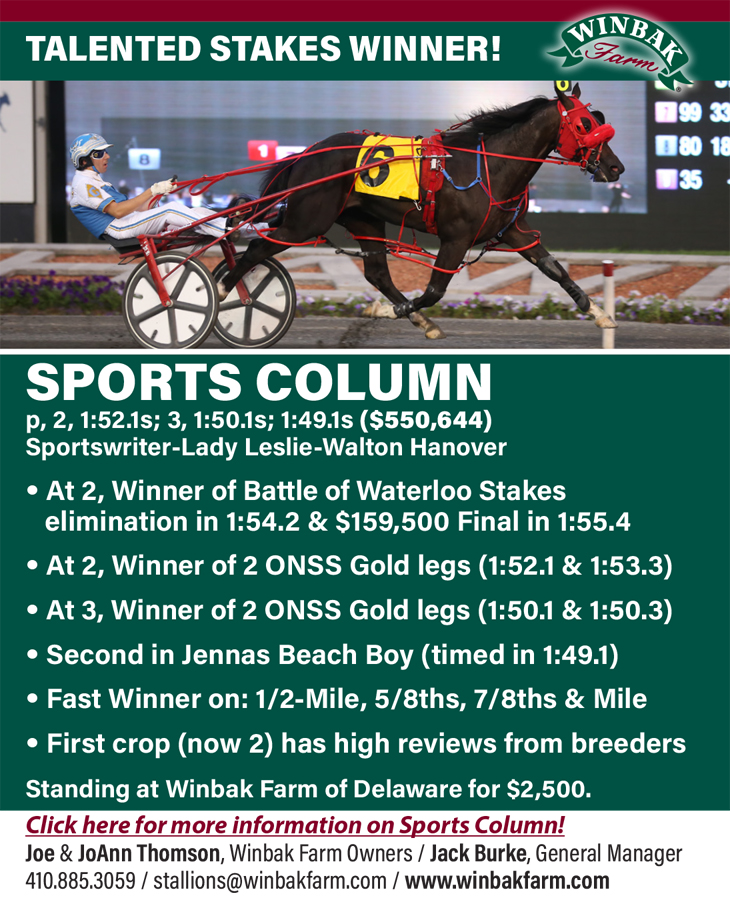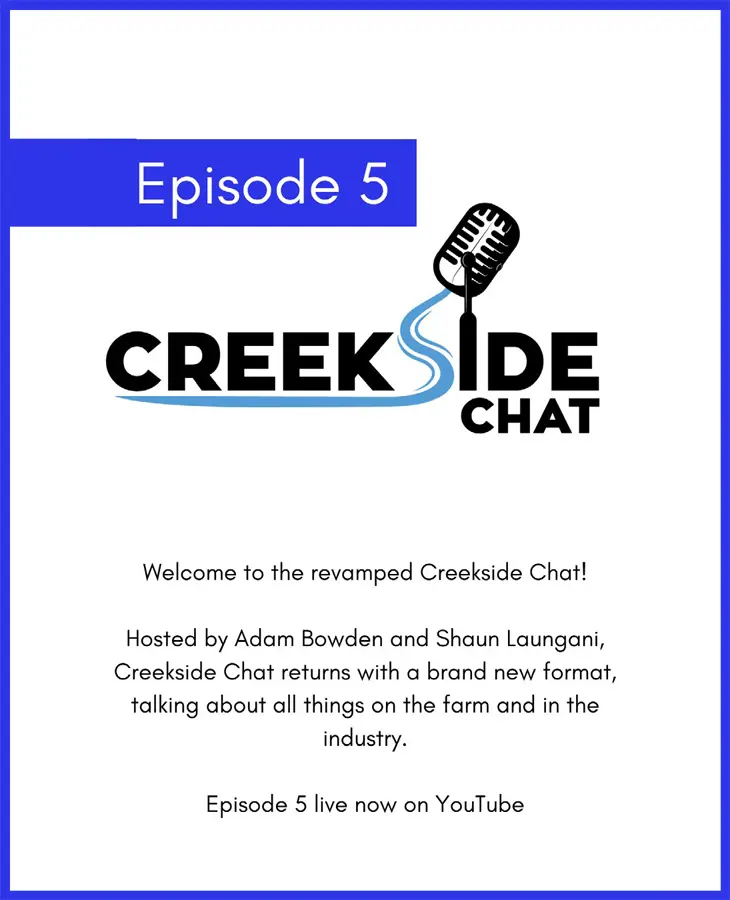The Horse That Changed My Life: John Hayes
by Dave Briggs, courtesy Ontario Racing
(Editor’s Note: This item originally appeared on the Ontario Racing website (www.ontarioracing.com) under a section called For The Love Of Racing which still adds new stories weekly. Harness Racing Update will periodically republish some stories from the archives and plans to add original ones here featuring the stories of participants from across the harness racing world)
In a generational sport such as harness racing, the father-son dynamic can be especially important when passions, stables and farms pass from one generation to the next. When your father is a legend, the horse that helps you achieve a measure of independence and success of your own can be particularly powerful.
So it is that a pacing-bred trotter named Decked came to be the horse that changed the life of the talented and quotable veterinarian Dr. John Hayes, who trained — and sometimes drove — such greats as 1981 Meadowlands Pace winner Conquered and 1984 North America Cup champion Legal Notice.
Hayes, formerly of Beamsville, ON and now living in Grimsby, is the son of the late John Hayes, Sr., the Canadian Hall of Fame trainer perhaps best known for winning the 1972 Little Brown Jug with Strike Out. Apart from being a talented horseman, Hayes, Sr. also served 10 years as the president of Standardbred Canada’s predecessor the Canadian Trotting Association, where he was instrumental in computerizing racing records.
Decked was foaled in 1978 at a pivotal point in the relationship of the two horsemen.
“Let’s just say it was a father-son relationship thing. Father was cutting back, phasing out and I was taking over the operation,” Hayes said. “But it didn’t all happen in one day.”
Dr. Hayes said his father started out with nothing but trotters, but, “once he became a horse racing politician, president of Standardbred Canada, etc., he became acutely aware that the public tends to be happier betting on pacers than trotters. So, he became somewhat anti-trotter. He had an anti-trotter period.
“I was young and wanting to expand my wings and there was no opportunity to do it with a trotter. So, we had this two-year-old, who was by the first crop of Penn Hanover called Decked. His mother was an Adios mare (named Battling Bess). She was from the last crop of Adios. He was made to pace, but he loved to trot.
“We were stabled at the fairgrounds in Beamsville… and when I jogged him, I didn’t put the hopples on. One day, father comes driving in the fairgrounds and I was going a training mile with (Decked) and was training him on the trot. He gave me s— and he said, ‘You’re wasting your goddamned time. How much you going?’ I told him. I can’t remember what it was. He said, ‘You can hold him together in 2:20, but he’s bred to pace and he’ll switch over to the pace as soon as you chirp to him going some speed.’”
Dr. Hayes was undeterred. “Another day he drove in and I just finished training him on the trot and I had gone a mile in 2:10. He said, ‘Yeah, yeah, you got away with it today. You just put him behind the starting gate with a field of horses and he’ll switch right over to the pace.’ So, I put him behind the starting gate and he trotted.
“The bottom line is he won his first pari-mutuel start, in London, in an Ontario Sires Stakes event in October. That was the day that I somewhat gained a level of independence from my father where I was able to make a decision and he didn’t have to tell me I was full of it.”
Decked raced at both gaits in his two- and three-year-old seasons, but stuck to the trot after that. In six racing seasons, Decked earned $140,000 as a trotter and a little more than $3,000 on the pace.













